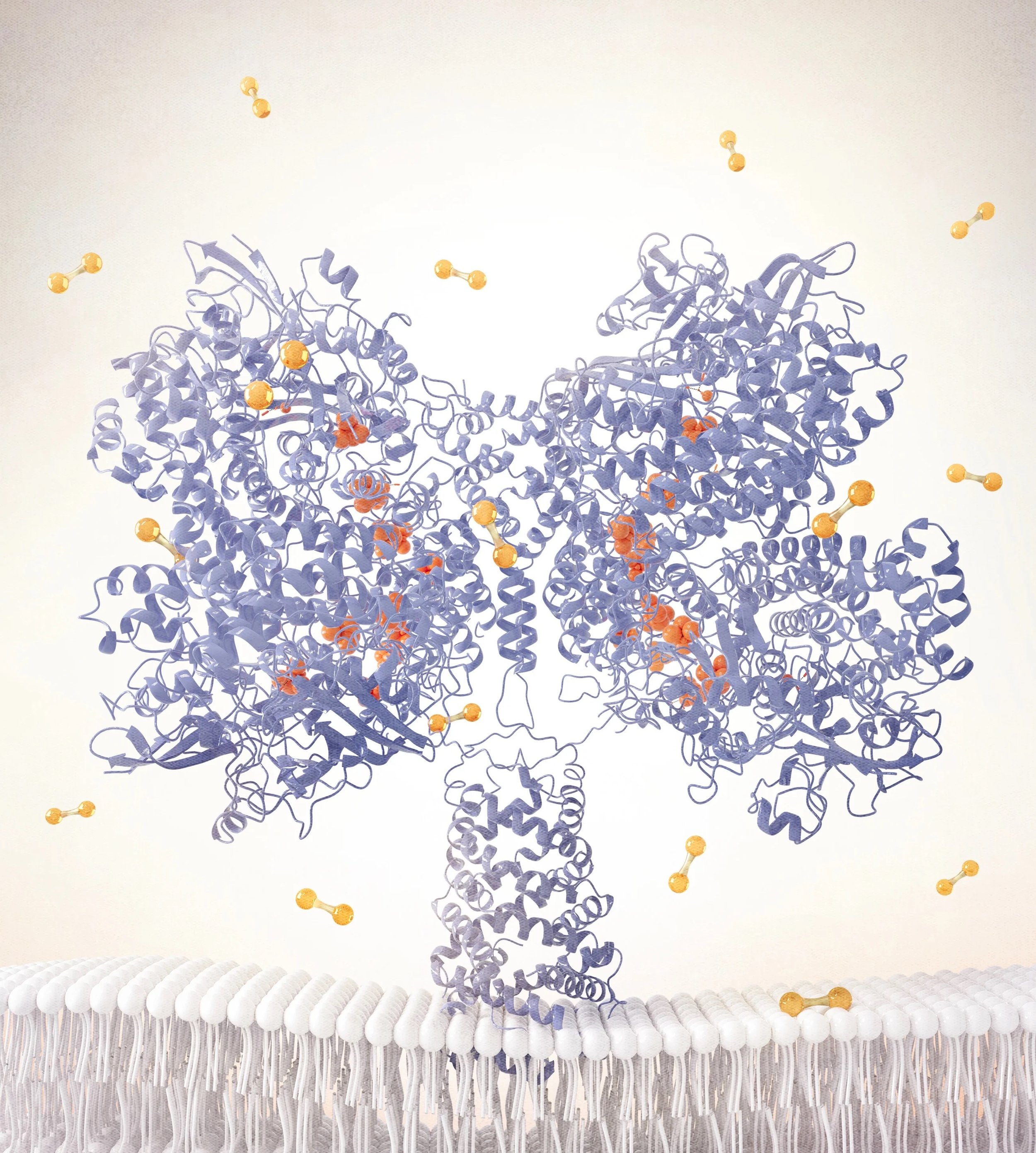HUC: the "battery enzyme" that can produce electricity from trace hydrogen in air
An artist’s rendering of Huc consuming hydrogen from air. Image: Alina Kurokhtina
We are always alive to new battery technology, and fruitful nature-technology crossovers, and here’s a great combination of that from Monash University in Australia. From Positive News:
Scientists have uncovered a ‘natural battery’ enzyme that could prove to be the holy grail of clean energy: electricity from thin air.
The enzyme, called Huc, was harvested from a common soil bacterium by a research team at Australia’s Monash University.
They discovered it consumes trace hydrogen from the atmosphere to generate an electrical current, which the bacteria use as an energy source to help them thrive in hostile environments, including volcanic craters and deep in the ocean.
Scientists believe the enzyme could be used initially to run small electronic devices using air or low doses of hydrogen. Supplementing with more hydrogen would, in theory, mean more power.
“Once we produce Huc in sufficient quantities, the sky is quite literally the limit for using it to produce clean energy,” said project lead Dr Rhys Grinter.
More here (and here is the original paper from Nature). And from Monash University’s own website:
“Once we produce Huc in sufficient quantities,” Dr Grinter says, “the sky is quite literally the limit for using it to produce clean energy.
“In addition to the potential applications of the research, this work is really important, because it can help us understand how our planet works.
“Between 60% to 80% of bacteria in soils, especially nutrient-deprived soils, have enzymes like Huc, and are constantly absorbing hydrogen.
“They absorb 70 million tonnes of hydrogen every year, and this shapes the composition of our atmosphere, which makes this process important for modulating the climate. Understanding the biochemistry of this process may allow us to harness it to stabilise our climate in the future.”

